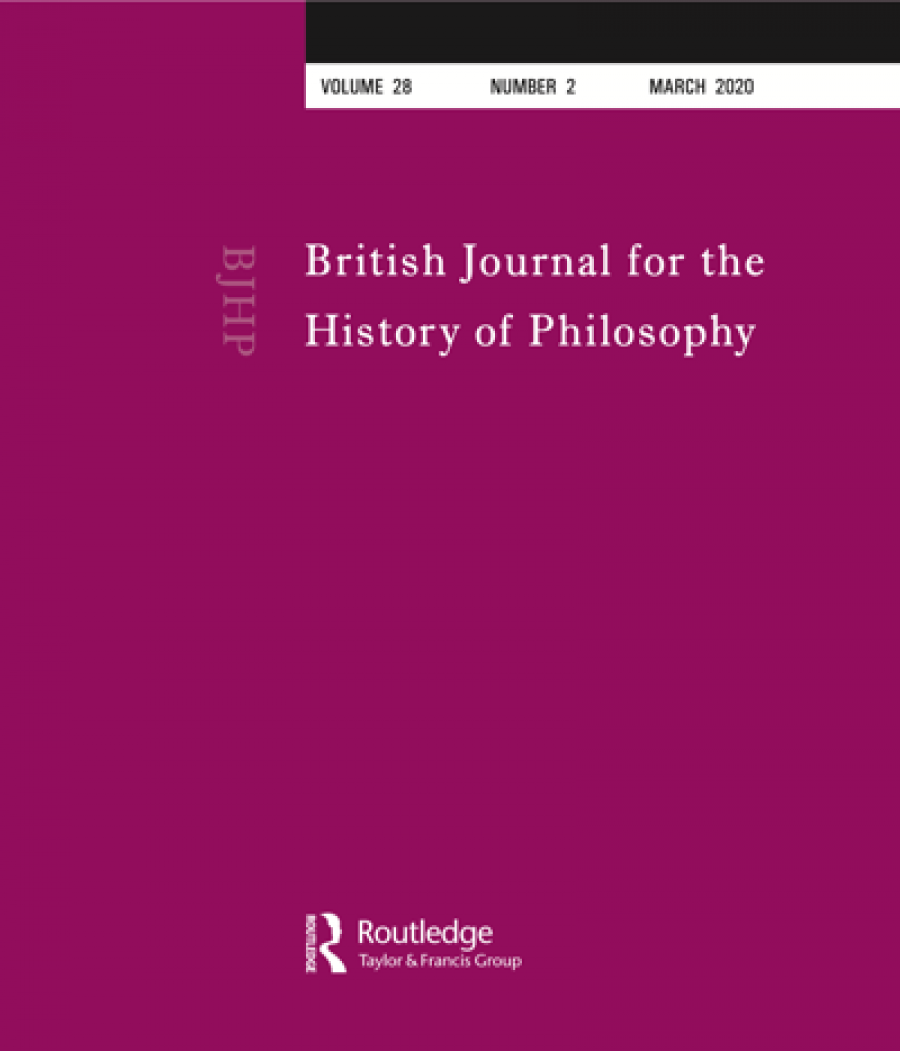
We are delighted to announce the winners of the Rogers Prize for best journal article of 2021, and Beaney Prize for best contribution to widening the canon of 2021.
The Rogers Prize is awarded each year to the best article published in the British Journal for the History of Philosophy in the last 12 months, as judged by the Editors and Associate Editors.
This year's prize was awarded to Caterina Tarlazzi for "The debate over universals in the time of Peter Abelard: what it is, and is not, about".
Abstract: From the nineteenth century onwards, the so-called ‘Debate over Universals’ from the time of Peter Abelard (c. 1100–50) is regarded as one of the major problems of medieval philosophy. This paper tries to advance the current approaches (which fall into two broad categories: a more analytical line of enquiry and a more historical one) by establishing a new understanding based on assumptions and questions. Through a comprehensive analysis of both published and unpublished logical commentaries from the first half of the twelfth century, it shows that – contrary to the received narrative – a lot is not discussed, but rather assumed. It therefore investigates what the debate is not about – arguing that this is just as relevant as what the debate is about.
The Beaney Prize is new this year. It is awarded annually to the best contribution to the British Journal for the History of Philosophy that widens the canon of History of Philosophy, as judged by the Editors and Associate Editors.
This year's prize was awarded to Lindsey Stewart for "'Count it all joy': black women’s interventions in the abolitionist tradition".
Abstract: In her introduction to Narrative of the Life of Frederick Douglass, Angela Davis notes that the abolitionist tradition often harboured a “gendered framework” that defined “black freedom” in terms of the “suppression of black womanhood”. As such, Davis charges us with the task of “develop[ing] a framework that foregrounds both the complexities of gendered violence under slavery and possible gendered strategies for freedom”. In this paper, I engage in this task in two ways. First, I analyse key gendered aspects of the abolitionist tradition that erase black women’s agency. One important implication of my argument is that the abolitionist tradition prioritizes physical resistance in how we define ‘black freedom’ and in narratives of black life. Second, I argue that black women have intervened in this tradition by broadening our sense of agency and extending the landscape of liberation. My primary example will be hoodoo practices that emphasize divine submission rather than resistance in the works of black women abolitionists, such as in Scenes of the Life of Harriet Tubman and The Memoir of Old Elizabeth, a Coloured Woman.
Congratulations to both authors!
